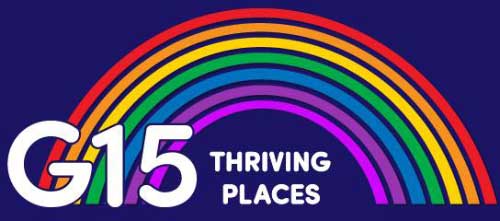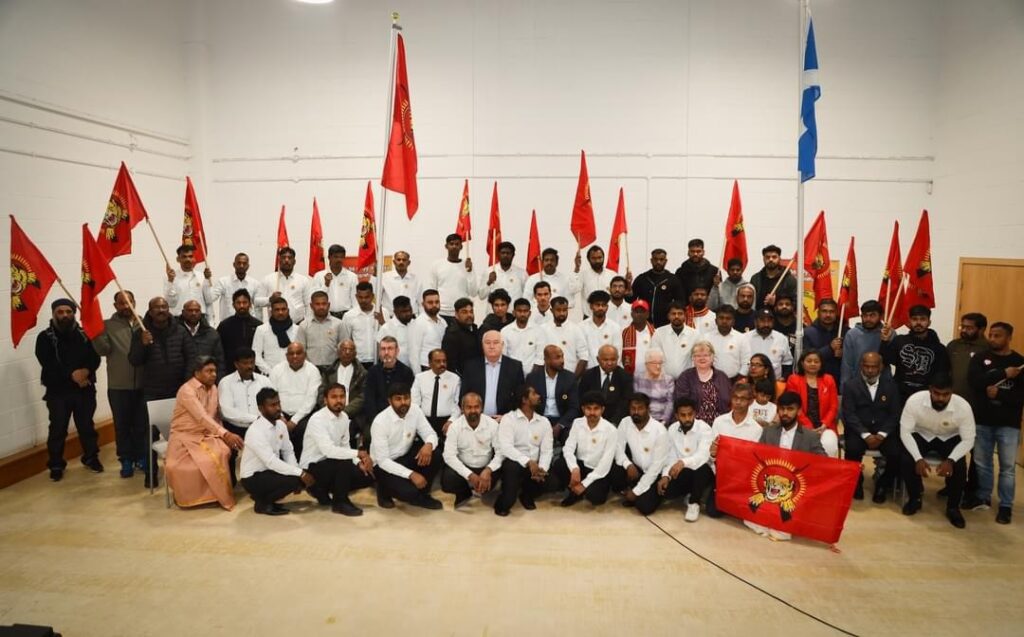Tamil event in Drumchapel
There are many issues that we could talk about on our website and hopefully in the future we will share several ideas on issues that are relevant to the work we do as community development workers as well as to the general community of Drumchapel and beyond. Today, we want to share some thoughts about an ethnic group that many of us may not know a lot about, the Tamil people. The Tamil people are an ethnic group who live in Southern India and Sri Lanka. They have been under an oppresive regime since 1948 when the British relinquished the then island called Ceylon to the local people. However, there were, and still are, two ethnic groups, the Sinhalese and the Tamil who live on the island.
During the British colonisation period from 1815 to 1948, many Tamils left India and established themselves in Sri Lanka working on the tea planatations for the British. When the British relinquished their authority over the island they wrote a constitution which incoporated both ethnic groups, but without any proper engagement of both groups. This led to much unrest with the Sinhalese gradually dominating all the different aspects of Sri Lanka society, and then through programmed violence, progressively started physically eliminating the Tamils from any form of participation in Sri Lanka society. From 1948 a process of linguistic discrimination, apartheid and structural genocide against the Tamils was implemented eventually stripping one million Tamils of their citizenship rights. Sinhala settlers were intentionally placed in Tamil territory under the guise of development schemes, something similar to what we currently witness in Gaza with Zionist settlers occupying Palestinian land.
In 1976, after years of violent oppression, the Tamil people created an armed group called the Liberation Tigers of Tamil Eelam (LTTE), commonly know as the Tamil Tigers. This was an attempt to resist the violent discrimination suffered over many years, also through the implementaion of different laws, among which the Sinhala Only Act which installed Sinhalese as the official language, excluding the Tamil people with their own language. Many Tamils had learned English and occupied many of the government posts and the officialisation of the Sinhalese language gave Senhalese people more possibilities of taking over government jobs, not requiring English anymore. This ended up excluding many Tamils from work in the public sector. The Act also had the intention of affirming Sri Lanka as a Buddhist counrty while the Tamil people are mostly Hindus. The Tamil Tigers, after many years of civil war, which claimed the lives of more than 100,000 people, disbanded, but nevertheless segregation and oppression of the Tamil people continued and stiil does, to date.
On the 21st of November, each year, the Tamil people celebrate their Flag day. On this day they remember those who were killed by the Sinhalese and renew their willingness to fight for a just and equitable society in a Tamil State. Thusi, a Tamil woman who lives in Drumchapel, and who is also the offical representative of the Transnational Government of Tamil Eelam, comprised of many Tamils living in exile but who continue in the struggle to see their people recognised as legitimate fully fledged citizens with their own state, organised this year’s flag day event in the Drumchapel Community Centre, with support from G15 Thriving Places.
For us, hosting the Tamil event was an opportunity to show how G15 Thriving Places, and indeed the people of Drumchapel, are part of a broader international solidarity movement. Many ethnic groups across the world are suffering oppression, whether poliitcal, social, economic or indeed through violence. This oppresson can reach the heights of ethnic cleansing and genocide in its worst form. The most recent example is the slaughtering of women and children in Gaza by the ultra-right wing Zionists who are focused on eliminating all Palestinians from Gaza. Other examples of oppression under the form of ethnic cleansing or genocide can be seen with the Rohingya people expelled from Myanmar and taking refuge in Bangladesh. However, even there they still suffer discrimination not having access to the basic rights of health, education and shelter with many living in makeshift tents and huts. Another example is the Uyghur people from the Northwest of China, who are oppressed by the Chinese Government, many held in so called “education centre” where they are forced to erradicate their own traditions and even language, and embrace the dominant Chinese culture and language. Yet another oppressed group are the Bedouins, discriminated against in Kuwait, many of who are forced to leave the country for fear of violence and persecution.
Resistance is a fundamental right of any oppressed group to challenge the illegal occupation of their land. It is indeed a duty of those oppressed because only the oppressed people can liberate both themselves and the oppressor. As community development workers we identify with those who suffer persecution, apartheid, discrimination or oppression of any sort. It is because of this stance that we stand shoulder to shoulder, side by side with the Tamil people who relentlessly continue their struggle for liberation which is part of the struggle of all oppressed peoples around the world.

